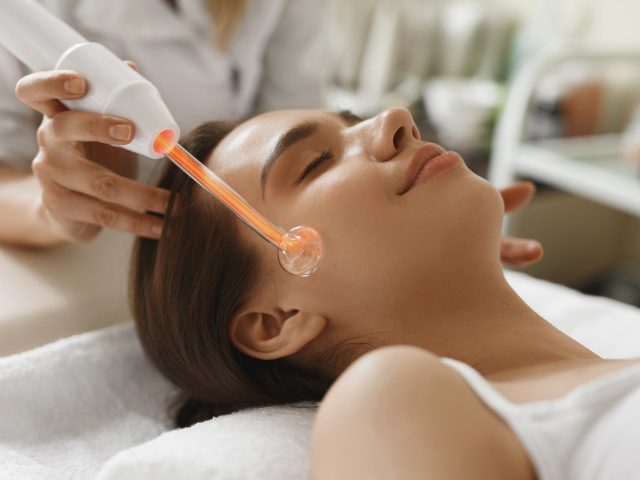
The Benefits of Glutathione for Skin Health
In the quest for radiant and youthful skin, people have long sought various remedies, from natural oils to advanced dermatological treatments. Among the many compounds that have garnered attention for their potential skin benefits, glutathione stands out for its multifaceted role in promoting skin health. Often referred to as the “master antioxidant,” glutathione is a powerful molecule that our body produces naturally. It plays a crucial role in maintaining cellular health, detoxification, and immune function. But what makes glutathione particularly intriguing is its potential impact on skin health.
Understanding Glutathione: The Master Antioxidant
Glutathione is a tripeptide composed of three amino acids: cysteine, glutamine, and glycine. Its primary function in the body is to act as an antioxidant, neutralizing harmful free radicals and protecting cells from oxidative stress. Oxidative stress is a key factor in the aging process and is also responsible for various skin issues, such as wrinkles, fine lines, and hyperpigmentation. By combating oxidative stress, glutathione helps to maintain the integrity of skin cells, thereby promoting a healthier, more youthful appearance.
In addition to its antioxidant properties, glutathione also plays a vital role in detoxification. It binds to toxins and heavy metals, facilitating their removal from the body. This detoxifying action not only benefits overall health but also has a direct impact on the skin. When the body is less burdened by toxins, the skin can function more effectively, leading to a clearer, brighter complexion.
Glutathione and Skin Brightening
One of the most talked-about benefits of glutathione for skin health is its ability to promote a brighter, more even skin tone. This is largely due to its effect on melanin production. Melanin is the pigment responsible for the color of our skin, hair, and eyes. While melanin is essential for protecting the skin from UV radiation, excessive production can lead to hyperpigmentation, dark spots, and uneven skin tone.
Glutathione works by inhibiting the enzyme tyrosinase, which plays a key role in the production of melanin. By reducing the activity of tyrosinase, glutathione decreases the amount of melanin produced, leading to a gradual lightening of the skin. This effect has made glutathione a popular ingredient in skincare products aimed at reducing hyperpigmentation and achieving a more even complexion.
It’s important to note that the skin-brightening effects of glutathione are typically gradual and require consistent use over time. Unlike harsh chemical agents that can lead to skin irritation, glutathione promotes a more natural and gentle approach to achieving a brighter complexion.
Anti-Aging Benefits of Glutathione
As we age, our skin undergoes various changes, including a decrease in collagen production, loss of elasticity, and the appearance of fine lines and wrinkles. While these changes are a natural part of the aging process, they are often accelerated by factors such as sun exposure, pollution, and poor diet. Glutathione’s powerful antioxidant properties make it a valuable ally in the fight against premature aging.
By neutralizing free radicals, glutathione helps to protect the skin from damage caused by environmental stressors. This, in turn, helps to preserve the skin’s elasticity and firmness, reducing the appearance of fine lines and wrinkles. Additionally, glutathione supports the regeneration of healthy skin cells, which is essential for maintaining a youthful appearance.
Another way in which glutathione contributes to anti-aging is through its role in collagen synthesis. Collagen is a protein that provides structure and support to the skin. As we age, collagen production decreases, leading to sagging skin and wrinkles. Glutathione helps to maintain collagen levels in the skin by protecting it from oxidative damage. This not only helps to keep the skin firm and supple but also promotes a more youthful appearance overall.
Glutathione’s Role in Skin Detoxification
The skin is the body’s largest organ and plays a vital role in detoxification. It helps to eliminate toxins through sweat and acts as a barrier against environmental pollutants. However, when the body is overwhelmed by toxins, the skin can become congested, leading to issues such as acne, dullness, and inflammation.
Glutathione’s detoxifying properties make it an important factor in maintaining clear and healthy skin. By binding to toxins and facilitating their removal from the body, glutathione helps to reduce the burden on the skin, allowing it to function more effectively. This can lead to a reduction in acne breakouts, improved skin clarity, and a more radiant complexion.
Moreover, glutathione supports liver function, which is crucial for overall detoxification. A healthy liver is better able to process and eliminate toxins, reducing the likelihood of skin issues caused by internal imbalances. By promoting liver health, glutathione indirectly contributes to healthier skin.

Glutathione and Skin Hydration
Hydrated skin is healthy skin. Proper hydration is essential for maintaining the skin’s barrier function, which protects against environmental damage and prevents moisture loss. Dehydrated skin can become dry, flaky, and more prone to irritation and aging.
Glutathione plays a role in maintaining skin hydration by supporting the production of ceramides, which are lipids that help to retain moisture in the skin. Ceramides are a key component of the skin’s natural barrier, and their production can be compromised by factors such as aging and environmental stress. By promoting ceramide production, glutathione helps to strengthen the skin’s barrier, keeping it hydrated and protected.
In addition to supporting ceramide production, glutathione also helps to reduce inflammation in the skin. Inflammation can compromise the skin’s barrier function, leading to increased moisture loss and dehydration. By reducing inflammation, glutathione helps to maintain a healthy and hydrated complexion.
Glutathione’s Impact on Inflammation and Skin Conditions
Inflammation is a common underlying factor in many skin conditions, including acne, eczema, and psoriasis. Chronic inflammation can damage the skin’s structure, leading to redness, irritation, and other symptoms that can affect both the appearance and comfort of the skin.
Glutathione has been shown to have anti-inflammatory properties, making it beneficial for individuals with inflammatory skin conditions. By reducing oxidative stress and modulating the body’s inflammatory response, glutathione can help to alleviate the symptoms of conditions such as acne and eczema. This can lead to a reduction in redness, swelling, and discomfort, promoting healthier skin overall.
Moreover, glutathione’s role in detoxification can also benefit individuals with inflammatory skin conditions. By helping to eliminate toxins from the body, glutathione reduces the likelihood of inflammatory responses triggered by toxic overload. This can lead to clearer, calmer skin and a reduction in flare-ups of conditions such as acne and eczema.
Conclusion
Glutathione’s multifaceted role in promoting skin health makes it a valuable asset in the pursuit of a radiant and youthful complexion. From its powerful antioxidant properties to its ability to promote skin brightening, reduce inflammation, and support detoxification, glutathione offers a natural and effective approach to achieving healthier skin. Whether you’re looking to address specific skin concerns or simply maintain a more youthful appearance, glutathione’s benefits are worth considering as part of your skincare routine. If you’re looking for the best glutathione supplement in the UK, feel free to visit their page to learn more.
